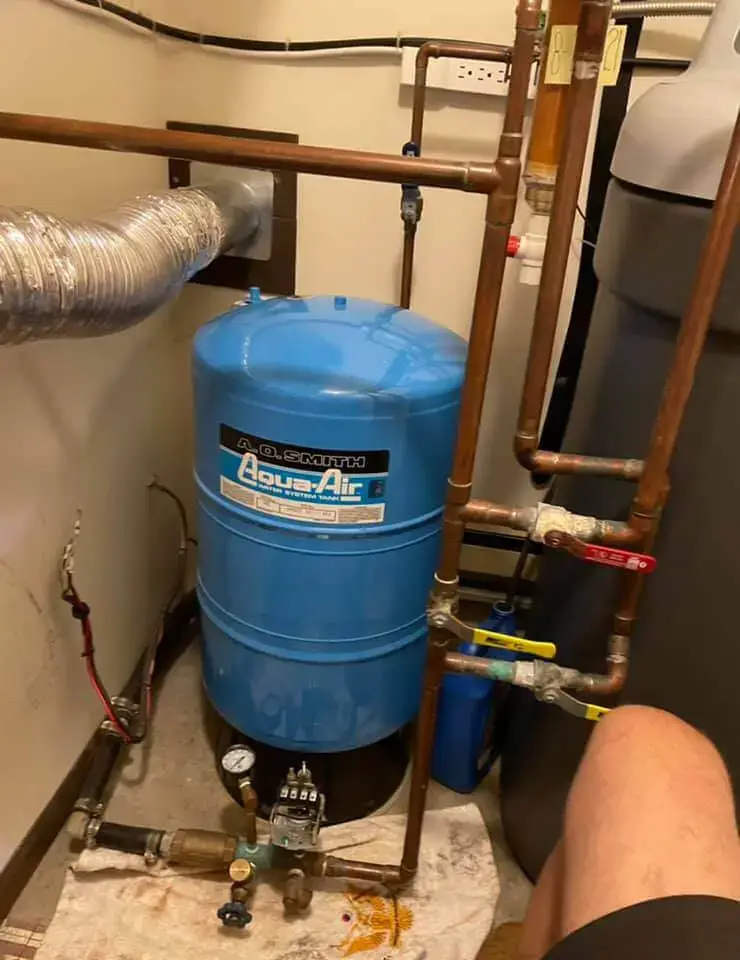Top Notch Water Filtration Systems: Ensuring Clean and Pure Drinking Water
Top Notch Water Filtration Systems: Ensuring Clean and Pure Drinking Water
Blog Article
Understanding the Key Components of Effective Water Filtering Equipments

Importance of Water Purification Equipment
Water filtering systems play a critical function in making sure access to clean and safe drinking water by properly getting rid of impurities and impurities. These systems are necessary in attending to the growing issues over water quality and the possible wellness dangers related to taking in infected water. By making use of various filtering systems such as reverse osmosis, triggered carbon, and UV sanitation, water filtration systems can efficiently remove harmful substances like bacteria, viruses, hefty metals, and chemicals from the supply of water.
In addition, water filtering systems aid to improve the preference and smell of water by eliminating chlorine, debris, and various other pollutants that can impact its top quality. Well Pump Replacement. This enhancement in water high quality not just makes it more palatable yet also encourages individuals to consume alcohol an adequate amount of water daily, promoting much better hydration and total health
Kinds Of Purification Components

Physical filters are designed to literally strain out pollutants from the water. These filters can be constructed from products like ceramic, carbon, or also sand, and they work by trapping bits larger than the filter's pores as water travels through.
Chemical filters make use of various chemical processes to eliminate pollutants from the water. Instances consist of turned on carbon filters, which adsorb impurities, and reverse osmosis membranes, which use pressure to separate pollutants from the water.
Biological filters use living microorganisms like algae or microorganisms to break down organic matter and pollutants in the water. These filters are typically made use of in wastewater therapy plants or all-natural water filtration systems.
Comprehending the various sorts of filtering parts is crucial for choosing one of the most appropriate water purification system for specific purification needs.
Function of Sediment Filters
Sediment filters play an essential function in water filtering systems by efficiently recording strong fragments put on hold in the water. These filters are commonly the first line of defense in a filtering system, getting rid of larger bits such as sand, silt, dust, and corrosion prior to the water relocates via finer purification phases. By trapping these sediments, the filters avoid them from reaching downstream elements, therefore expanding the life expectancy and effectiveness of the entire system.
Disregarding this upkeep can lead to clogging, lowered water circulation, and compromised purification efficiency. On the whole, debris filters are important components that add significantly to the efficiency of water filtering systems.
Duty of Activated Carbon Filters
Playing a critical role in water filtering systems, triggered carbon filters contribute in removing pollutants and impurities from the water supply. These filters are developed to adsorb and trap a variety of pollutants, including chlorine, unstable natural substances (VOCs), chemicals, and herbicides. The Bonuses turned on carbon material has a large area, enabling for the efficient trapping of pollutants with a procedure called adsorption. As water travels through the filter, the activated carbon holds and draws click for more info in onto the pollutants, making certain that the water that comes out on the various other side is cleaner and much safer for usage.
Activated carbon filters are highly effective at boosting the preference and smell of water by decreasing chemicals that can affect its quality. They are also efficient in eliminating specific heavy metals like lead and mercury. Additionally, these filters can aid protect against the build-up of germs and algae in water, additional enhancing its overall top quality. As a result of their convenience and integrity, turned on carbon filters are a crucial component in guaranteeing that water is cleansed to the greatest standards before getting to consumers.
Understanding Reverse Osmosis Solutions
Reverse osmosis systems are sophisticated water purification systems that utilize an advanced process to eliminate pollutants and contaminations from drinking water. These systems function by applying pressure to the water, compeling it through a semi-permeable membrane. This membrane layer acts as an obstacle, permitting only distilled water particles to pass through, while obstructing bigger molecules such as minerals, chemicals, and various other pollutants. Therefore, the water that comes out on the other side is significantly cleaner and much safer for intake.
One key benefit of reverse osmosis systems is their capability to get rid of a large range of pollutants, consisting of hefty metals, liquified solids, viruses, and microorganisms. This makes them highly efficient in boosting the total quality and safety of drinking water. In addition, reverse osmosis systems are reasonably low-maintenance and can be mounted under the sink or in a central filtering system, offering practical accessibility to tidy water throughout the house. Overall, understanding Get the facts exactly how reverse osmosis systems work can aid individuals make informed decisions about their water filtration requirements.
Final Thought
In verdict, effective water purification systems are vital for making sure safe and tidy drinking water. By recognizing the function and function of each component, individuals can make informed choices when selecting a water purification system.
Water filtration systems play a crucial function in guaranteeing access to secure and clean alcohol consumption water by effectively eliminating impurities and pollutants. By using numerous filtration systems such as reverse osmosis, turned on carbon, and UV sanitation, water filtration systems can effectively remove damaging materials like microorganisms, viruses, heavy steels, and chemicals from the water supply.
Debris filters play an important duty in water filtration systems by successfully recording solid bits put on hold in the water (Pump repairs & installation).Playing a vital role in water filtration systems, triggered carbon filters are instrumental in eliminating contaminations and contaminants from the water supply.Reverse osmosis systems are advanced water filtration systems that utilize an advanced procedure to remove pollutants and pollutants from alcohol consumption water
Report this page